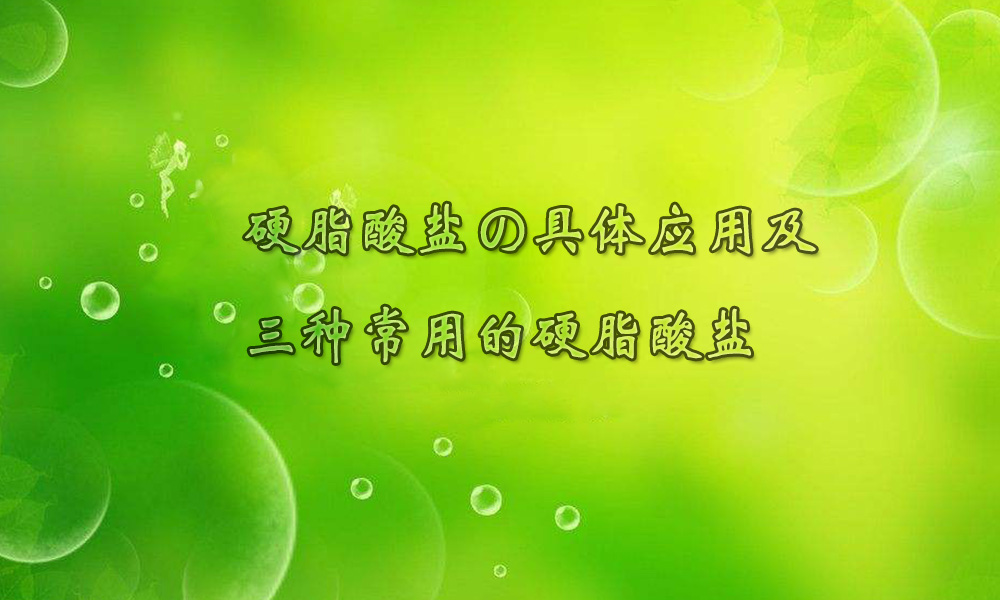
Stearate Its lubricity, waterproofness, calenderability and high melting point properties are widely used in industry. The specific applications are as follows:
1. Polymer:
Acid neutralizer in polyolefin: it directly contributes to the color stability and corrosion prevention of polyolefin;
Lubrication/Processing Aids: Improves the processability of polyolefins, polyamides, styrenes and rubbers in extrusion (film, fiber, profiling, etc.) and compression molding;
Releasability: For thermoplastics, rubber and thermosetting products, such as polyurethane foam and unsaturated polyester.
2. Grease industry:
The stearate in grease mainly gelatinizes , increase pour point and increase consistency. Lubricating oil can be made into grease by thickening it with calcium fatty acids.
3. Textile industry:
Stearate is mainly used as a waterproofing agent.
4. Construction industry:
Mainly used as waterproofing agent and anti-caking in building materials agent, thickener.
5. Paper industry:
Used as sizing in the paper industryAgent.
2. The following is an introduction to the supply of stearates, among which three types of stearates are commonly used on the market:
1. Calcium stearate:
Calcium stearate: white powder, insoluble in water , cold ethanol and ether, dissolved in hot organic solvents such as benzene, benzene and turpentine, soften at around 125°C and begin to melt at around 145°C until completely turning into a fluid. Calcium stearate is recognized as physiologically safe. Calcium stearate is insoluble in most solvents. On heating, they become slightly soluble in aromatic compounds, chlorinated hydrocarbons or vegetable oils, mineral oils or paraffins. Used as heat stabilizer for polyvinyl chloride and lubricant for various plastic processing, release agent, etc. In hard products, the gelation speed can be increased by combining with basic lead salt and lead soap.
2. Zinc stearate:
White powder, insoluble in water, soluble in hot Organic solvents such as ethanol, benzene, toluene, and turpentine have a melting point of about 120°C and a small melting range. After melting, they become liquids with low viscosity. Their states are divided into white turbid liquids and clear transparent liquids. Product classification can be divided into solid zinc stearate and water-based zinc stearate. Zinc stearate has a wide range of applications. It can be used as a lubricant and release agent for styrene resin, phenolic resin, and amino resin, as a softening lubricant for rubber products, a polishing agent for textiles, a stabilizer for polyvinyl chloride plastics, a flattening agent for paint and enamel, and as a raw material for cosmetics. .
3. Barium stearate:
Barium stearate, white or slightly yellowish Setting powder, melting point >225℃, soluble in hot ethanol, benzene, toluene and other non-polar solvents, insoluble in water and ethanol. Used as lubricant, sliding agent, heat stabilizer, release agent, accelerator, etc. in plastics, machinery, rubber, paint and ink and other industries.

 微信扫一扫打赏
微信扫一扫打赏

